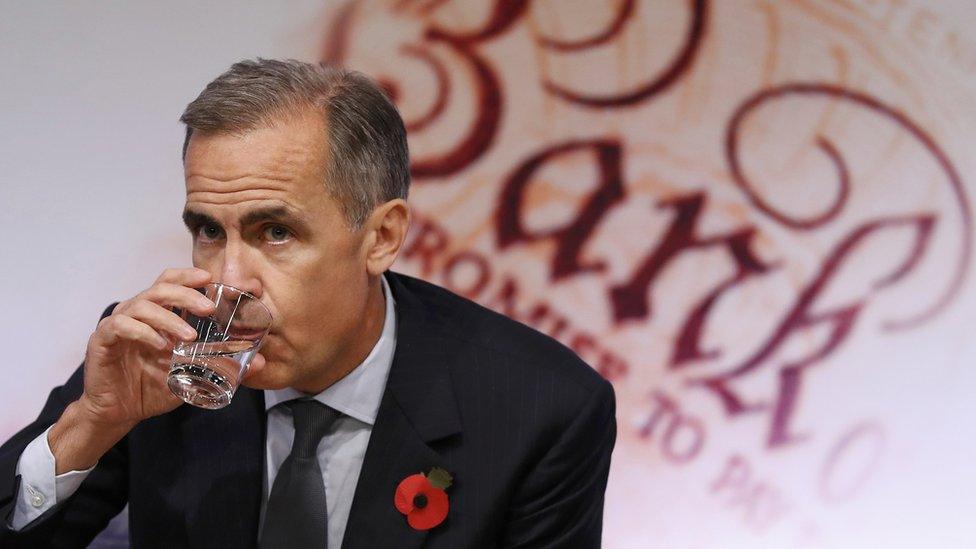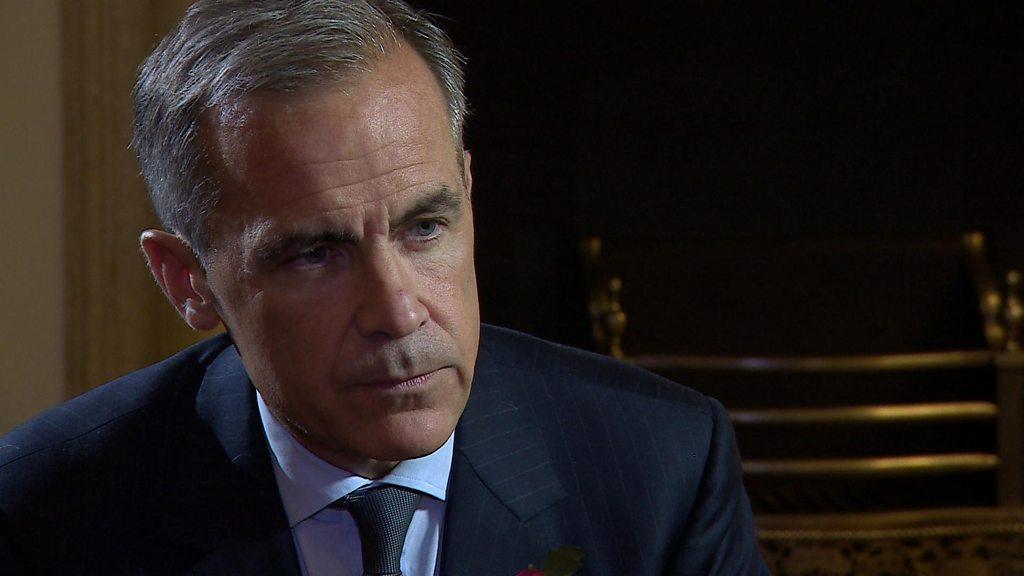Mark Carney plan for Brexit gets cool response from Gove
- Published

Brexit supporters have rejected plans reportedly backed by Bank of England Governor Mark Carney for an extended transition when Britain leaves the EU.
He hosted dinners last week with business leaders about keeping single market access for at least two years after Brexit, the Sunday Times claims.
But former cabinet minister Michael Gove told the BBC that such a plan could complicate the Brexit process.
A Bank spokesman declined to discuss "private meetings and conversations".
Business has become increasingly concerned about a so-called "cliff-edge" change in trading relations with Europe after Brexit.
Prime Minister Theresa May acknowledged the unease during a speech at the CBI conference on Monday.
And in an interview, also in the Sunday Times, she admitted that the complexities of Brexit was something that kept her awake at night. However, she said she wanted to "get on with the deal" of leaving the EU.
Economic cushion
Mr Carney reportedly hosted a dinner last Monday at Chatham House for about 50 senior investment bankers and a second on Wednesday for finance directors of the high street banks.
The Sunday Times said he urged business leaders to unite around a common goal of securing adequate transition time to allow business to adapt and cushion the wider economy. It would mean the UK using current EU trading rules at least until 2021.
Mr Carney's view is that this would not only be in the interests of the UK, but also the EU.
Bank independence 'should be curbed'
Bank sees sharp rise in inflation in 2017
The governor's belief that there needs to be an adequate transition period is not new, however, and sources at the bank rejected reports that he had been in "secret talks" and "plots" last week.
On 15 November, Mr Carney told the Treasury Committee that it would be in the interests of British companies, especially in the financial sector, to have a transitional deal to cover the period between leaving the EU and the finalising of new trade deals.
He told the committee, external: "Just to be absolutely clear, what I mean by that is I am not talking about staying in the European Union,"
However, speaking on the BBC's Andrew Marr Show, leading Brexit campaigner Mr Gove said: "I'm open to the case for a transitional agreement but I'm not convinced we need one. Again, there is a tendency to over-complicate this process."
He added that his "worry" is that "there are some people who can't get over the fact that the British people have voted to leave the EU and want us to have a transitional arrangement which is as close as possible" to EU membership as a way of avoiding Brexit.
Robust defence
Mr Gove criticised the use of the term "hard Brexit" as it was "designed to make a liberation sound like a punishment".
Mr Carney has been criticised by pro-Leave campaigners for allegedly making pro-Remain comments, something the governor denies.
The Bank of England does not have any role in the Brexit negotiations with the EU but can provide technical assistance to the UK government.
Mr Carney, who is due to step down in 2019, has been robust in defence of Bank's operational independence since June's referendum.
Last month he said BoE officials would not "take instruction" from politicians, a week after Mrs May had highlighted the "bad side-effects" of the Bank's near-zero interest rates and said a change had to come.
- Published17 November 2016

- Published3 November 2016
